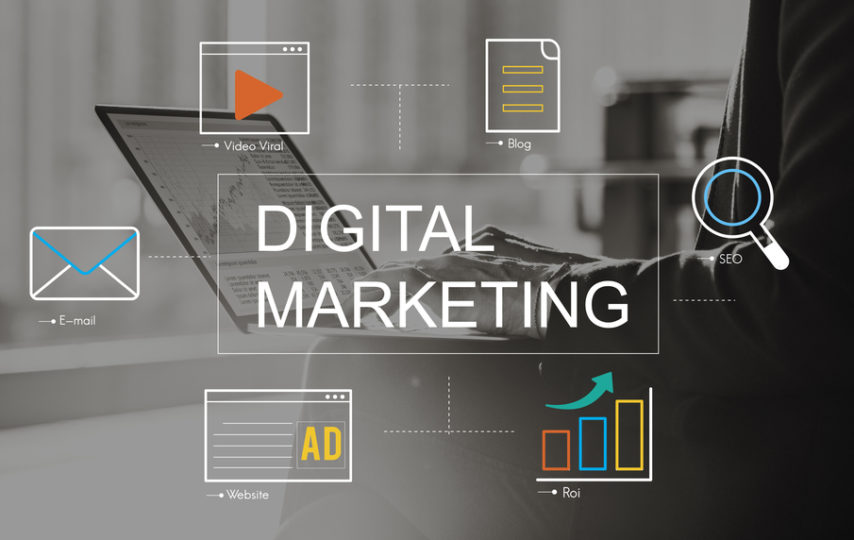Over the last 20 or so years, computers, tech, and the internet have turned the world of marketing and advertising upside down, and today there is a huge range of promotions tactics firms can use to reach out to new markets and spread their message.
Digital and web marketing services have transformed the way companies reach out to – and interact with – their clients in everything from automated e-commerce websites to social media marketing and direct email campaigns. In particular, the internet and modern software apps have democratized advertising and set up a level playing field where all firms, big or small, have access to the same tools.
Wider access means more data means more competition
However, while this wider access has made promotions easier and fairer for all, it has also posed a significant problem for marketers – namely, how to make their content stand out. It’s estimated the world currently produces an incredible 2.5 quintillion bytes of data per day. To put that into perspective, a quintillion has 18 zeros. A high percentage of this astonishing amount of data is being churned out by blogs and social media content, making it harder and harder to successfully draw attention to your marketing message.
Ways to boost your online marketing
In a world where there are now more web pages than there are people, companies need to take a step back and work out a marketing strategy if they’re to have any chance of success in the fiercely competitive online arena.
If you find your company is constantly struggling to get your message heard, below are a few ideas you could try that will help you stand out more and grab clients’ attention – both existing and potential.
Start with a strategy
Like most things in life, starting with a plan will help organize your thoughts and give you a clear route to follow to reach your goals. But, first, it’s important to work out what you want your marketing campaign to achieve – whether that be increased exposure, a better reputation, or more followers on your social pages.
You should also factor in timescales and deadlines into your plan, as this can help keep all those involved in your promotions stay motivated towards reaching the end target. Things you should consider include:
Target demographic: Ask yourself who you’re trying to reach out to before considering anything else. Your target market will dictate pretty much every part of your campaign, so you should have a clear idea in your head of key characteristics like sex, age, wealth, geographic location, interests, etc.
Decide on your key marketing channels: As mentioned earlier, the web and tech have revolutionized advertising and marketing, and there are now almost limitless ways you can reach out to new clients and expand your market. A key starting point will be your website (more on this later), but you should also think about online video, social media sites, Pay-Per-Click (PPC) advertising, email campaigns, etc. The target demographic you identified in the last stage will also help you identify the best channels. For example, in terms of social media, you’ll probably have greater success using TikTok or Instagram for a younger market, while older users are more comfortable using Facebook.
Work out your budget: While many online and social media promotions can be done in-house with relatively few skills, you will definitely achieve better results if you hire a specialist web marketing consultant. Also, if you intend to engage in online advertising, you’ll need to limit how much you want to spend as the costs of PPC ads can soon spiral out of control if you don’t.
Agree on benchmarks and deadlines: The saying goes, ‘the longest journey begins with a single step’ but setting lofty targets from the outset can be off-putting to even the most skilled and experienced marketing campaigner. Rather than just focusing on your end goal, try splitting things down into achievable chunks. Not only will this make the final goal seem more manageable, but it’ll also give you smaller tasks to work on the route to the final target.
Firm up the aims of your marketing: Through considering the points above, you may find that your initial goals have changed a little, so be sure to firm up the point behind your promotions so you maintain a clear direction in everything you do after that.
Tactics that will improve your firm’s overall online presence
With a strategy in place and a clear route map to follow, you’ll now be in a much better, much more focused place to begin to start tackling the more nitty-gritty details of your campaign. The world of online promotions has so many potential avenues and vehicles you could use that it would be impossible to list them all here but below are some of the key elements you should consider for the best chances of success.
Perform a full audit on your website – and redesign if necessary
These days, it’s estimated around 71% of all consumer journeys start with an online search. The days of directory listings like the Yellow Pages are long gone, and these days the way most of your clients will find you is via a search engine – more than likely Google.
Before you even think about any other marketing, you need to make sure your website is projecting the right image for your firm, is up-to-date, and features a clean and easy-to-use navigation structure that prioritizes the most important information.
Web technologies and design trends change quickly, meaning, as a general rule, if your site is over three years old, it will already be behind the curve and will likely be starting to show its age. As a result, many problems can crop up without you realizing it, from outdated graphics to poor font sizes, broken links, missing pages, etc. You should also ensure your site is optimized for use on mobile devices using a responsive format.
In truth, while you could attempt to do this work yourself, you would be well-advised to hire a professional web development company to perform an impartial audit. Not only will they highlight faults you probably won’t see, but they’ll also be able to make suggestions for tweaks or even produce a full redesign.
Concerning the idea of redesigning your site, while it’s now possible to use one of the numerous online website builder tools and build a site yourself if you want to end up with a professional-looking site, you should hire a developer.
Improve your social media presence
At a minimum, your company should be on Facebook and Twitter (and your clients will expect you to be, too), but you should also consider the other major players like YouTube, Instagram, LinkedIn, etc. Additionally, don’t discount some of the smaller social platforms that tend to have far more specific user bases (e.g., Pinterest’s demographic is 77% female).
You should ensure the branding across the platforms you use remains consistent (i.e., same header image, logo, strapline, bio info, etc.) so that each of your pages is instantly recognizable as belonging to you. Also, think about using a common handle across your pages to find it easier for users.
In terms of the material you post, avoid the hard sell and instead try to build a rapport by speaking in a friendly way when you write. Video has been proven to have by far the highest engagement rate online but, if you’re short of video content, at least try to post interesting photos, infographics, etc. Also, be mindful of the best times to post on particular platforms – and you should try to post at the same time each week too.
If, having done all of the above, you still find your content is failing to attract hits and likes, it might be time to start thinking more creatively. For example, you could enlist the help of a social influencer to subtly include or mention your firm or its goods or services. Online influencers have the advantage that their material appears impartial – plus seems far less contrived than traditional glossy adverts. So check online for firms that can prepare an influence marketing plan for your company that will see you hitting new heights on the social platforms.
Invest in your site’s Search Engine Optimization (SEO)
As discussed, today’s consumers will most likely find you through a Google search (Google accounts for over 92% of all search-engine-generated traffic), so your site must feature high up its Search Engine Results Pages (SERPs).
Search Engine Optimization (SEO) is a highly detailed and involved process that helps sites rank higher in the search engines (in other words, Google) and attract more traffic. However, successful SEO involves a huge range of techniques that are far beyond the skill set of most casual web users, so to guarantee success and start attracting more clients to your site, you should set aside a sizeable portion of your marketing budget for SEO.
Other tricks to consider
The above tips will improve your firm’s overall online profile, but some other tricks you might want to consider include:
- Direct email marketing
- Customer Relationship Management (CRM) software
- Setting up a blog site to run in tandem with your main pages
- Installing analytics software on your site so you can monitor the most popular content
- Using online tools like chatbots to increase engagement.








